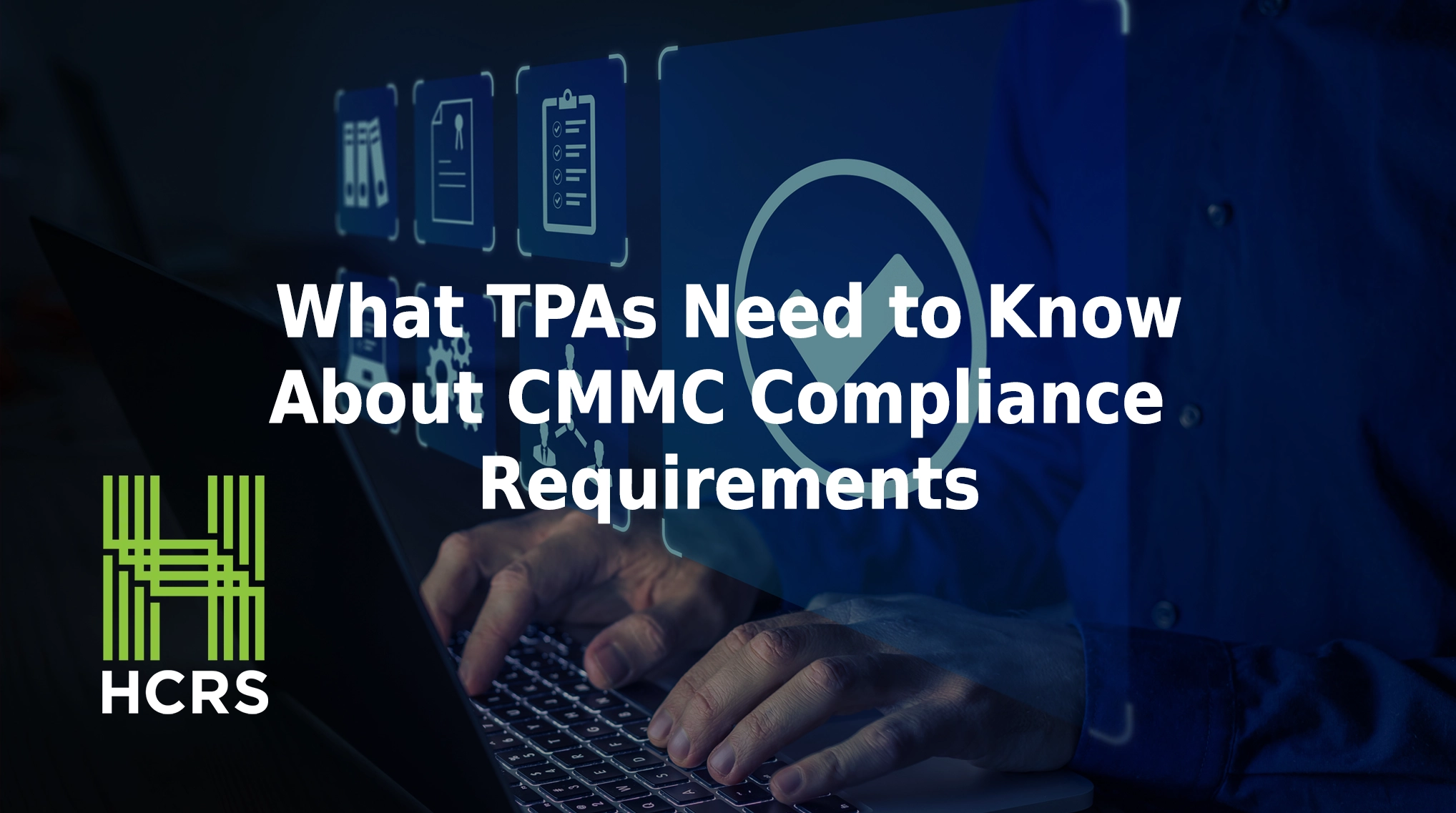
What TPAs Need to Know About CMMC Compliance Requirements
Why CMMC Compliance Matters for TPAs
As a Third-Party Assessor (TPA) supporting organizations in the Department of Defense (DoD) supply chain, it is critical that you adhere to the requirements under the Cybersecurity Maturity Model Certification (CMMC) — both for your clients’ security, and for your contract eligibility. CMMC compliance ensures the protection of sensitive data like Controlled Unclassified Information (CUI), while safeguarding national security interests. For TPAs, understanding this framework and your role in guiding clients through compliance is essential to maintaining trust and ensuring long-term success. Our guide outlines what TPAs need to know about CMMC compliance requirements, including certification levels, key security controls, and best practices for managing assessments effectively.
What Is CMMC Compliance?
The Cybersecurity Maturity Model Certification (CMMC) is a multi-level framework established by the DoD to strengthen cybersecurity across its supply chain. It requires contractors and subcontractors to meet specific cybersecurity standards before working on DoD contracts.
Key Objectives of CMMC:
- Ensure the protection of Controlled Unclassified Information (CUI) and Federal Contract Information (FCI).
- Standardize cybersecurity maturity across all defense contractors.
- Minimize the risk of data breaches and cyber threats in the supply chain.
The Role of TPAs in CMMC Compliance
As a TPA, your role is pivotal in evaluating whether organizations meet the required CMMC standards. Key responsibilities include:
✅ Conducting independent assessments for CMMC certification.
✅ Verifying that clients meet the necessary security controls for their CMMC level.
✅ Guiding clients on remediation steps if compliance gaps are identified.
TPAs are not responsible for self-certifying clients, but they do play a key role in maintaining objectivity during assessments.
CMMC Levels Explained for TPAs
Understanding the three CMMC levels helps TPAs determine the scope of assessments based on the sensitivity of data managed by the contractor.
CMMC Level 1 (Foundational)
- Basic cybersecurity hygiene.
- Protects FCI.
- Focus: Simple practices like password management and firewall configuration.
CMMC Level 2 (Advanced)
- Intermediate-level security controls based on NIST SP 800-171.
- Protects CUI.
- Focus: Access controls, encryption, and regular vulnerability scans.
CMMC Level 3 (Expert)
- Advanced security practices for organizations handling sensitive CUI.
- Based on NIST SP 800-172 standards.
- Focus: Enhanced threat detection and incident response strategies.
TPAs must understand these levels to assess the correct controls and requirements for each client.
Key CMMC Compliance Requirements for TPAs
TPAs must verify that clients meet these core CMMC requirements:
Access Control (AC)
- Limit access to authorized personnel only.
- Implement multi-factor authentication (MFA).
Audit and Accountability (AU)
- Maintain secure logs of system activities.
- Track and investigate security incidents.
Risk Assessment (RA)
- Identify and document cybersecurity risks.
- Implement risk mitigation strategies.
Security Awareness Training (AT)
- Provide regular training for all personnel handling CUI.
- Conduct phishing simulations and awareness testing.
Configuration Management (CM)
- Secure all hardware and software configurations.
- Apply patches and security updates regularly.
Best Practices for TPAs Managing CMMC Compliance
To ensure successful assessments and maintain compliance standards, TPAs should do the following.
Develop Standardized Assessment Protocols:
- Use pre-built assessment templates aligned with CMMC standards.
- Implement repeatable checklists for each assessment phase.
Implement Compliance Management Tools:
- Use certification management platforms to streamline documentation and audits.
- Automate compliance tracking with tools like LogicGate or CyberSaint CyberStrong.
Provide Pre-Assessment Readiness Checks:
- Conduct preliminary gap analyses before formal assessments.
- Identify and address vulnerabilities early.
Stay Updated on Evolving CMMC Standards:
- Monitor updates from The Cyber AB (formerly the CMMC Accreditation Body, or CMMC-AB).
- Participate in professional development through NDIA, SANS Institute, and ISACA.
Encourage Continuous Monitoring:
- Advise clients to adopt SIEM tools for ongoing threat detection.
- Promote regular compliance reviews beyond initial certification.
Essential Tools for TPAs Managing CMMC Compliance
Leverage the right tools to streamline assessments and ensure accurate results. Top solutions include:
- CyberSaint CyberStrong: Real-time compliance tracking and automated assessments.
- LogicGate Risk Cloud: Customizable dashboards and risk assessment tools.
- PreVeil: Secure document collaboration and encrypted email solutions.
- Archer Compliance Management: Designed for large-scale risk management.
Common Challenges TPAs Face (and How to Overcome Them)
❌ Challenge: Managing high-demand assessments with limited resources.
✔️ Solution: Implement scalable compliance platforms that support multiple clients simultaneously.
❌ Challenge: Inconsistent client readiness for CMMC certification.
✔️ Solution: Offer readiness check services to identify gaps before formal assessments.
❌ Challenge: Staying compliant with evolving CMMC standards.
✔️ Solution: Regularly update assessment protocols based on guidance from The Cyber AB.
How HealthCare Resolution Services Supports TPAs
HealthCare Resolution Services provides expert solutions designed specifically for Third-Party Assessors that support DoD contractors. Our services include:
- Standardized Assessment Templates: Reduce complexity with pre-built compliance templates.
- Comprehensive Compliance Management Software: Automate tracking and reporting.
- Training and Development: Stay current with evolving CMMC standards.
- Ongoing Support: Real-time assistance for complex assessments.
Our mission: Empower TPAs with the tools, training, and resources needed to deliver consistent, high-quality CMMC assessments.
FAQs About CMMC Compliance for TPAs
Q: Do TPAs need their own CMMC certification?
A: Yes, TPAs must be accredited by The Cyber AB to conduct formal assessments.
Q: How often do clients need to be reassessed?
A: Assessments are required every three years, with continuous monitoring in between.
Q: Can TPAs assist with remediation?
A: TPAs can identify gaps but must remain objective. Remediation services are typically handled by separate consultants.
Ready to Simplify Your CMMC Assessment Process?
HealthCare Resolution Services provides the expertise, tools, and resources TPAs need to ensure accurate, efficient, and consistent CMMC assessments. Partner with us to become a trusted leader in the cybersecurity compliance industry.
